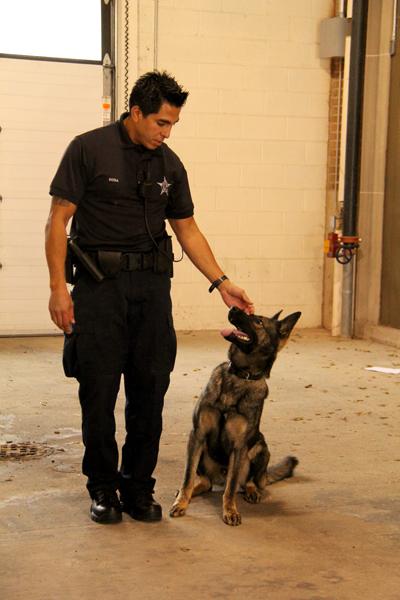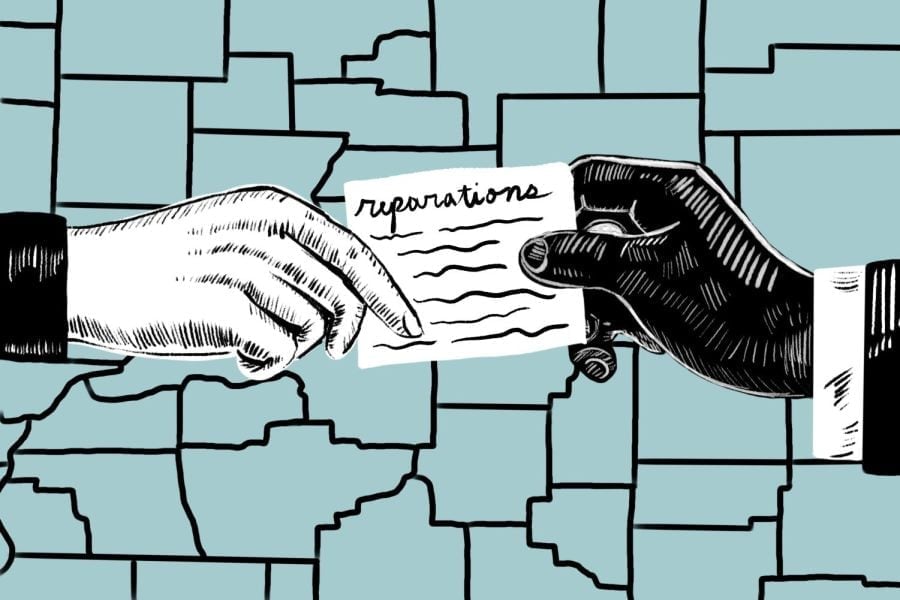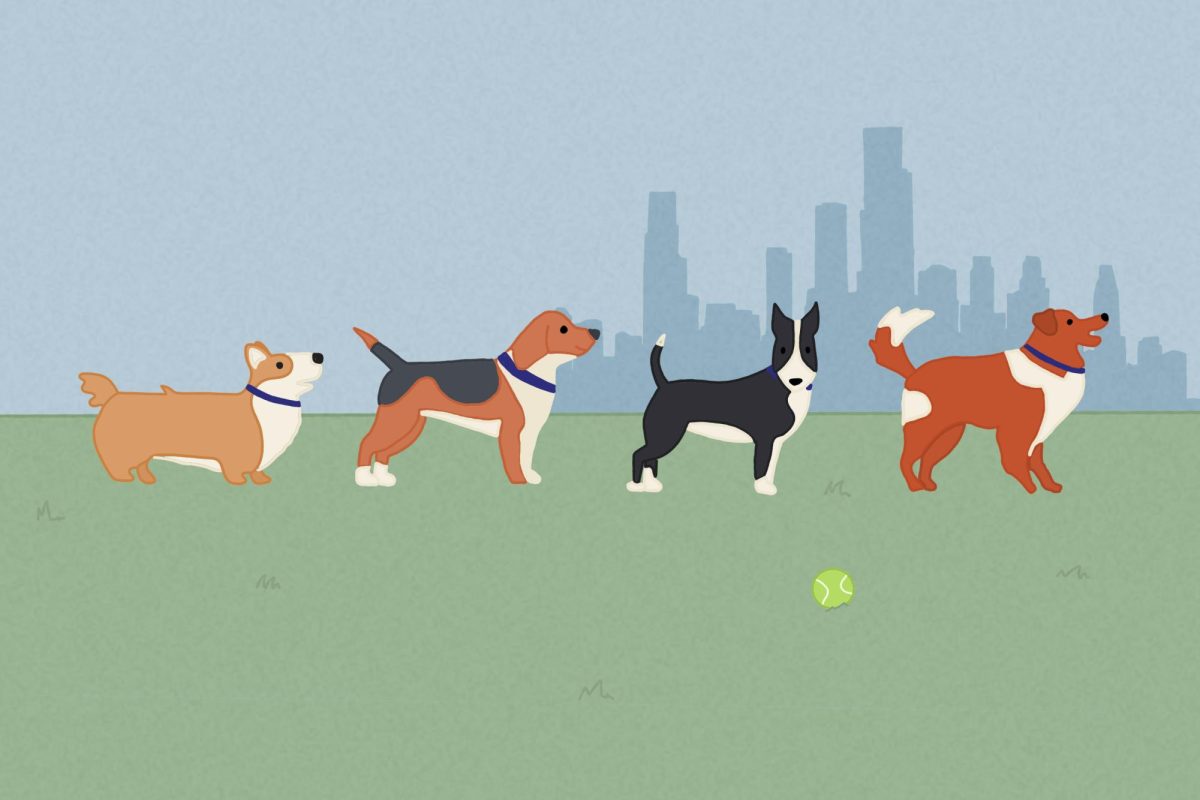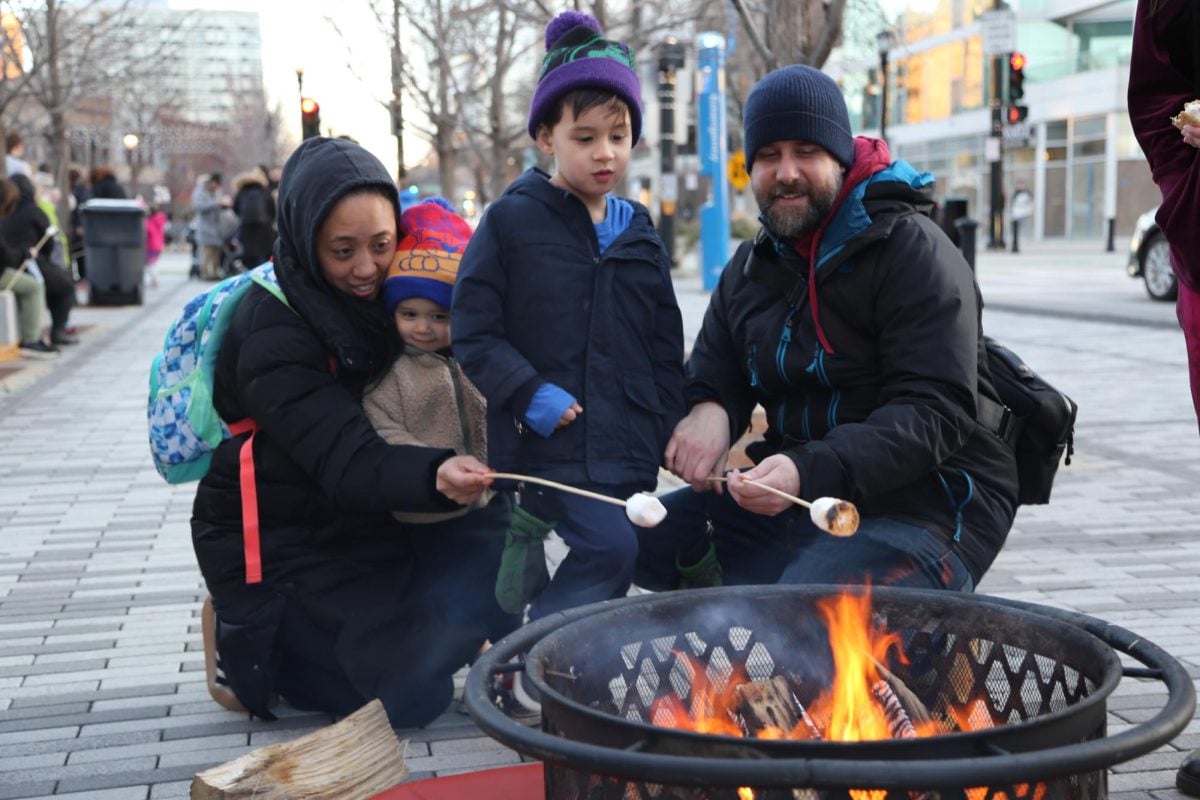
Officer Anthony Sosa, starting his eighth year at the Evanston Police Department, was selected as the department’s new canine officer. His partner is a 2-year-old dual purpose German shepherd, who has the ability to detect narcotics and to perform tracking as it relates to Sosa’s patrol duties. Sosa has been teamed up with Rony since August, when they were paired at a camp in Pennsylvania. The duo communicates in Czech because Rony is originally from Slovakia and has been previously trained in the language.
The Daily Northwestern: How does the program work?
Anthony Sosa: The department decided to reinstate the canine unit because our former canine Jack retired from an injury. They had a selection process, a letter of intent, interviews, home visits (to make sure that my home life was compatible with having a canine), and then the bosses decided who would be the canine officer. Once they decided, I was informed that I was going to Sharpsville, Penn., to train at Shallow Creek Kennels and I underwent a six-week course.
The Daily: How is it different working with Rony?
Sosa: At the beginning of the day, I have to make sure he’s fed, watered and walked. His diet stays strictly to dog food, good caliber food. He’s not eating table scraps. Bonding with him during the day, talking to him in an appraised tone, so when we come to work he’s looking to play with me. He doesn’t know that he’s doing an exterior vehicle sniff, building sniff or an article search — all those missions that he has, it’s basically play time to him.
The Daily: Does Rony have specific dietary requirements or restrictions? How does he keep healthy?
Sosa: Basically any kind of high activity work dog, they maintain a high-protein diet and they try to stay away from the regular foods you can buy at Target. Follow Your Nose, a pet store here in town, the owner has donated food to the previous dog (Jack) and has agreed to keep doing that. And the vet, Dr. Howes at the Berglund Animal Hospital, he also gave Jack his vet care and has agreed to take on Rony as well.
The Daily: What are the advantages and disadvantages of working with Rony?
Sosa: The advantages are that he has a keen sense of smell, the physical presence of the dog and how he can diffuse a situation before it escalates to something big. The disadvantages are that I’m really attached to Rony right now, so I worry a bit more because anything can happen to him. It’s not like he’s wearing combat boots like we are. He’s not issued a bullet-proof vest, but we’re working on that. After a long service period (usually 5 to 10 years), hopefully I can purchase him from the city and he can live with me permanently.













